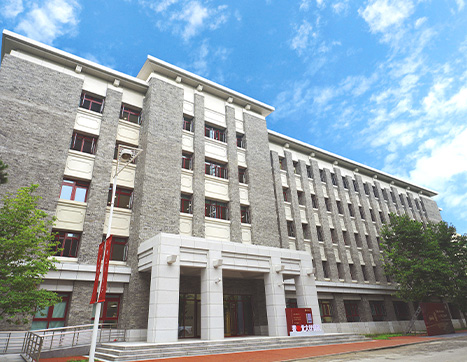The School of Computer Science was estabilished in 2021 on the basis of The Department of Computer Science and Technology since 1978. It has 116 faculty members, including 61 professors/researchers, 51 associate professors/assistant professors/associate researchers, 4 lecturers/assistant researchers. Among them, there are 7 Academicians, 4 Chair professors, 7 Distinguished Professors of the Scholar for the National Major Talent Project Program, 15 Recipients of NSFC Young Scientists Fund (Class A),and 5 Recipients of NSFC Young Scientists Fund (Class B). In addition, many international academic experts are invited as the part-time professors to guide the students.

The School of Computer Science has two national key disciplines, computer science and technology, and software engineering. It consist of 3 undergraduate majors, computer science and technology (includes areas in scientific, technology, and Tutoring class), software engineering, and data science and big data technology. 3 graduate majors, system architecture, computer software and theory, computer application. At the same time,the School of Computer Science also contains two national level laboratories "National Experimental Teaching Demonstration Center" and "National Engineering Research Center of Visual Technology", as well as a number of key laboratories of the Ministry of Education.
The School of Computer Science at Peking University covers the most comprehensive research fields in Computer Science. We conduct a wide range of research in various areas, including software engineering, information security, human-computer interaction and multimedia, search engine and information mining, database and information systems, cloud computing, mobile computing and wireless autonomous networks, computational linguistics, microprocessor research, digital audio and video coding, multimedia communications, digital media processing platform, computer reconfigurable logic CECARL, non-volatile memory technology, 3D chip technology, hardware architecture for energy efficient wireless LAN, and energy-efficient applications.
The School of Computer Science keeps a close academic relationship with many universities and research institutes abroad, such as UCLA, UCSB, CMU, Oregon University, Durham University, Waseda University, University of Tokyo,University of Waterloo, University of Sydney Technology, and University of Westminster. We also cooperate with many well-known companies in the industry closely, such as IBM China Research Institute, Baidu, Bell Laboratories, Intel Laboratory, HP Labs, Microsoft Research at Asia, etc. The School of Computer Science helps students broa...

The School of Computer Science establishes 7 scientific research institutions according to the research directions, including Institute of Software, Metaverse Technology Institute, Institute of Data Science and Engineering, Institute of Networking and Energy-efficient Computing(NEEC), Institute of Computer Architecture, Institute of Computational Linguistics and Institute for Visual Technology.
The School of Computer Science at PKU oversees the development of the primary disciplines of Computer Science & Technology and Software Engineering. In recent years, with focus on cutting-edge and interdisciplinary research, we have leveraged our strengths in software engineering and management, big data systems, computational linguistics, and digital media technology to support major national strategic applications. We have also strengthened our research strengths in machine perception and AI, made breakthroughs in braininspired computing and embodied intelligence, consolidated the foundation of system architecture, and boosted forward-looking research in computer science theory. In the field of scientific research, we have achieved a series of major results with international influence and in support of the country's strategic goals and industrial demands, including the resource reflection mechanisms and efficient interoperability technologies for cloud-edge integrated systems, and key technologies for ultra-high-definition video polymorphic element encoding and decoding. We have received two First Prizes for the National Technology Invention Award, and received dozens of best paper or outstanding paper awards from top international conferences including ICML, WWW, VLDB, EMNLP, and ASPLOS.
